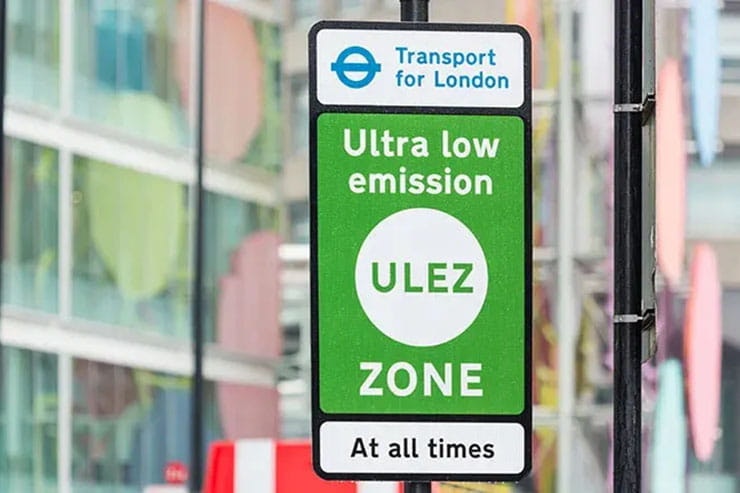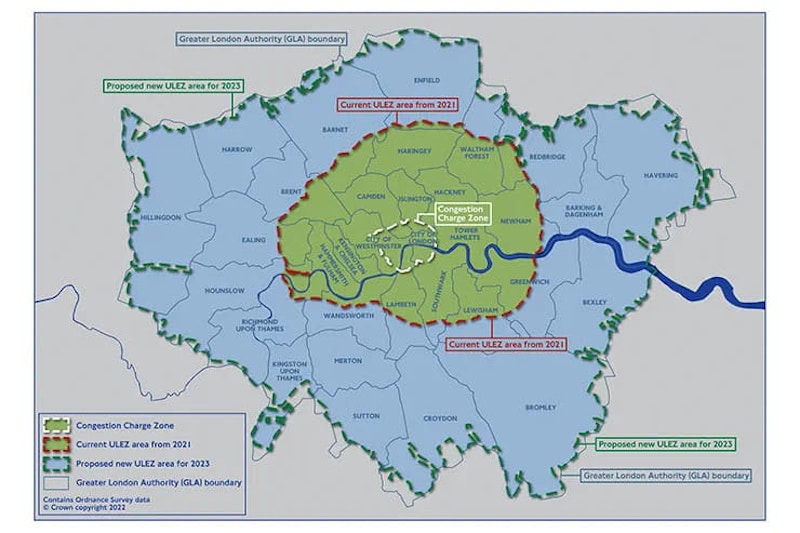Councils rebel against London ULEZ expansion
By Ben Purvis
Motorcycle Journalist
23.01.2023
From 29th August this year London’s ULEZ (Ultra Low Emissions Zone) is expanding to almost entirely fill the area enclosed by the M25 and imposing a £12.50-per-day charge on any vehicle driving inside its boundaries that doesn’t meet required emissions limits.
However, as the deadline for the Zone’s expansion approaches, councils in London are starting to rebel, saying they won’t install the cameras required by Transport for London (TfL) to catch non-compliant vehicles. At the moment, two councils – Tory-run Harrow and Lib Dem Sutton – have said they will not cooperate with the ULEZ plan being rolled out under Labour’s London Mayor, Sadiq Khan.
Harrow Times reports that a Harrow Council spokesperson told the Local Democracy Reporting Service that it will “not be cooperating with TfL in putting cameras in Harrow.” Meanwhile, in Sutton, the council has revised to enter the agreement to implement the ULEZ infrastructure. Councillor Roth Dombey told a meeting last week: “"We have been clear with the mayor all along that any expansion of the ULEZ must be accompanied by significant investment in public transport; a fair and comprehensive scrappage scheme and an extension of the planned implementation date. Until that happens, we will not support the scheme.”
Elsewhere in London, the Conservative councils in Bexley, Bromley and Hillingdon have all said they are opposed to the scheme but are yet to confirm whether they’ll agree to implement it or not. Croydon council has also said it will resist the roll-out of the automatic number plate recognition cameras required to implement the scheme.
The subject also came up in Parliament last week, with Prime Minister Rishi Sunak saying in Prime Minister’s Questions on Wednesday: “It is disappointing that the Mayor, backed by the Leader of the Opposition, is choosing not to listen to the public, expanding the zone against the overwhelming views of residents and business.”
As we explained last year, motorcyclists are hit particularly hard by the new ULEZ limits despite being some of the least polluting vehicles on the road. Not only are we charged as much per day as any vehicle up to 3.5 tonnes, including cars and vans, despite taking up a fraction of the space and spending far less time idling in traffic, but bikes have to comply with Euro 3 emissions standards introduced in 2007, while petrol cars need to meet standards introduced two years earlier in 2005. That means while an 18-year-old petrol car should be new enough to escape the ULEZ charge, bikes older than 16 years will be penalised. To compound the problem, the average motorcycle in the UK is approaching 16 years old, meaning nearly half of all the bikes on the road are too old to avoid the ULEZ fee of £12.50 per day. In comparison, the average car is only 8 years old and the average scrappage age is 13, so only a small proportion of petrol car drivers will be impacted by the expanded ULEZ. Diesel drivers need to meet Euro 6 emissions limits introduced in 2015, putting them in a similar position to motorcycles in terms of average vehicle age and the proportion of vehicles that will be ULEZ exempt (i.e. around half of the vehicles still on the road will be too old to avoid the ULEZ fee).
Classic bikes registered as historic vehicles – which must be over 40 years old – will be exempt from the scheme, as well as not needing to pay VED or have an annual MOT test. It’s also possible to pay for an emissions test on any non-Euro 3 bike to prove it meets the required standards, allowing its records to be updated to show it’s exempt. Many older bikes or imported bikes, despite never needing to be certified to Euro 3 standards, are clean enough to pass. The test can be done via: https://www.nationalemissionstestcentre.com/
Share on social media:

